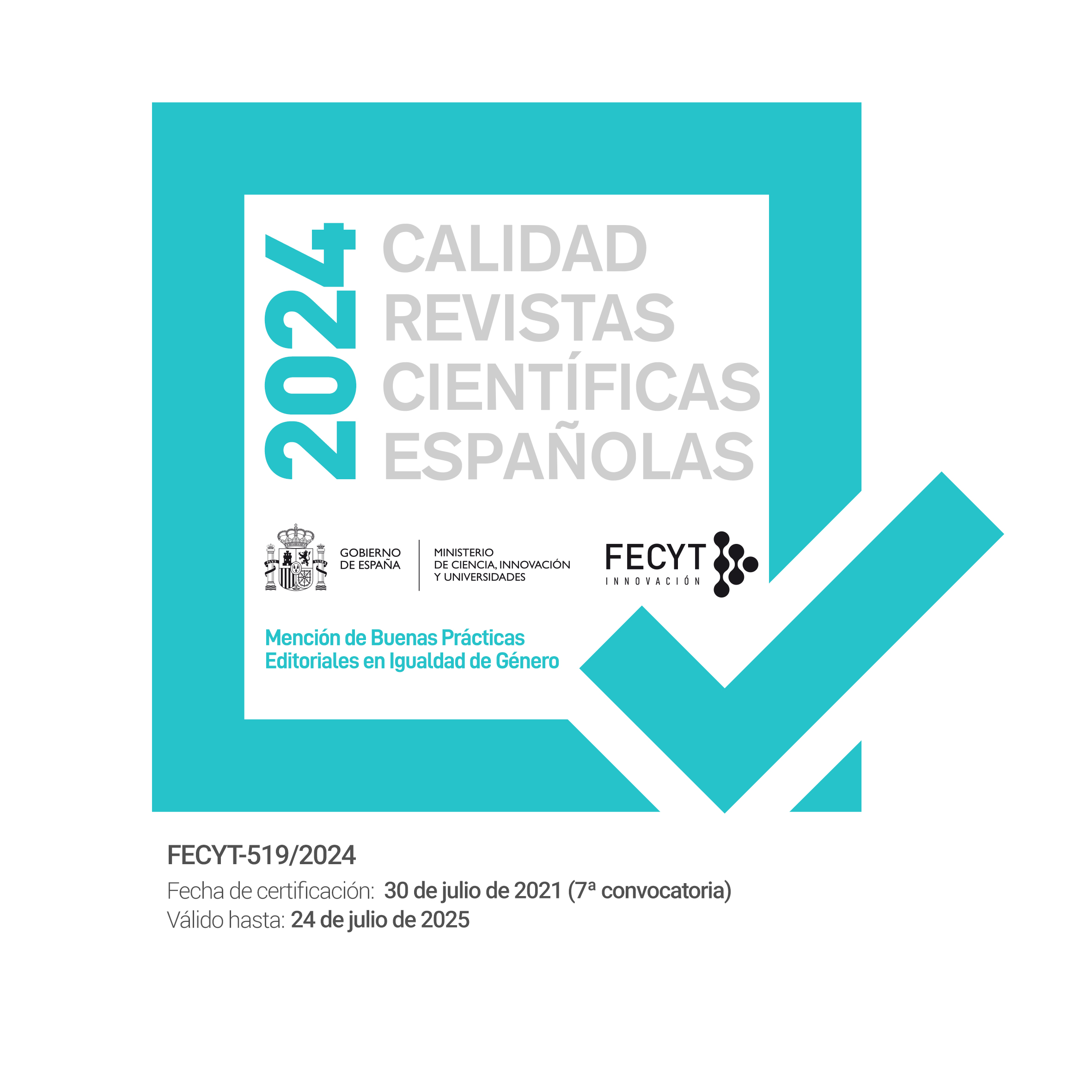Meaning in the mind within the sociocultural commitment of Cognitive Linguistics
Palabras clave:
Sociocultural Cognitive Semantics, contexts of knowledge, metaconcepts, context-of-sociocultural-knowledge-oriented construal, meaning in the mindResumen
The article reviews the problem of meaning construction and language use in the field of sociocultural cognitive semantics, focusing on meaning as a dynamic experience construction process represented by virtue of language within multiple networks of human knowledge. After outlining the core theoretical assumptions, the article examines the empirical evidence on the processes that underlie the generation of meaning. The paper presents five outcomes for both usage-based theory and empirical linguistic methodology. In reviewing the evidence, we highlight issues of alternative potential explanations as well as remaining areas for future research. The approach establishes new findings and authentic contributions to cognitive linguistics.Descargas
Citas
Boldyrev N. N. (2015). Antropotsentricheskaya sushchnost' yazyka v ego funktsiyakh, edinitsakh, kategoriyakh. Voprosy kognitivnoy lingvistiki, 1, 5-12. [Antropocentric nature of language in its functions, units, and categories].
Boldyrev, N. N. & Dubrovskaya, O. G. (2016). Sociocultural commitment of Cognitive Linguistics via dimensions of context. ILHA DO DESTERRO. A Journal of English Language, Literatures in English and Cultural Studies, 69 (1), 173-182.
Boldyrev, N. N. & Dubrovskaya, O. G. (2016). Sotsiokulturniy kontekst interpretatsii mira i formirovaniya diskursa. Izvestiya RAN. Seriya literaturyi i yazyka, 75(1), 29-39 [Sociocultural context of world interpretation and discourse construction].
BNC – British National Corpus <http://www.natcorp.ox.ac.uk> [22/11/2016].
Chomsky, N. (1986). Knowledge of language: Its nature, origin, and use. New York: Praeger.
Croft, W. (2009). Toward a social cognitive linguistics. In V. Evans & S. Pourcel (Eds.), New Directions in Cognitive Linguistics (pp. 395-420). Amsterdam: John Benjamins.
Demyankov, V. Z. (1994). Kognitivnaya lingvistika kak raznovidnost interpretiruyuschego podhoda. Voprosy yazykoznaniya, 4, 17-33 [Interpretive aspect of Cognitive Linguistics].
Evans, V. (2009). How words mean: lexical concepts, cognitive models, and meaning construction. Oxford: Oxford University Press.
Evans, V. & Green, M. (2006). Cognitive Linguistics: An introduction. Edinburg: Edinburg University Press.
Geeraerts, D. (2010). Theories of Lexical Semantics. Oxford: Oxford University Press.
Geeraerts, D. (2016). The sociosemiotic commitment. Cognitive Linguistics, 27(4), 527-542.
Harder, P. (2010). Meaning in mind and society: A functional contribution to the social turn in Cognitive Linguistics. Berlin: Mouton De Gruyter.
Hart, C. (2010). Critical discourse analysis and cognitive science: new perspectives on immigration discourse. Palgrave: MacMillan.
Kubryakova, E. S. (2004). Yazyk i znanie: Na puti polucheniya znaniy o yazyke: Chasti rechi s kognitivnoy tochki zreniya. Rol yazyka v poznanii mira. M.: Yazyki slavyanskoy kultury [Language and Knowledge: On how to acquire knowledge about language: Parts of speech in the framework of Cognitive Linguistics: The role of language in the process of world conceptualization].
Lakoff, G. & Johnson, M. (1999). Philosophy in the flesh: The embodied mind and its challenge to western thought. New York: Basic Books.
Langacker, R. W. (2000). Grammar and conceptualization. Berlin; New York: Mouton De Gruyter.
Langacker, R. W. (2008). Cognitive Grammar: A basic introduction. Oxford: Oxford University Press.
LLA (2003) – Longman Language Activator. Helps you write and speak natural English. Longman.
Pütz, M., Robinson, J. A. & Reif, M. (eds.) (2014). Cognitive Sociolinguistics. Social and cultural variation in cognition and language use. Amsterdam/Philadelphia: John Benjamins Publishing Company.
Shaw, G. B. (1994). Pygmalion. New York: Dover Publications.
Tomasello, M. (1999). The cultural origins of human cognition. Cambridge: Harvard University Press.
Vygotsky, L. S. (1986). Thought and language. Cambridge, Massachusetts: The MIT Press.
Descargas
Publicado
Cómo citar
Número
Sección
Licencia
Aquellos autores/as que tengan publicaciones con esta revista, aceptan los términos siguientes:
- Los autores/as conservarán sus derechos de autor y garantizarán a la revista el derecho de primera publicación de su obra, el cuál estará simultáneamente sujeto a la Licencia de reconocimiento de Creative Commons que permite a terceros compartir la obra siempre que se indique su autor y su primera publicación esta revista.
- Los autores/as podrán adoptar otros acuerdos de licencia no exclusiva de distribución de la versión de la obra publicada (p. ej.: depositarla en un archivo telemático institucional o publicarla en un volumen monográfico) siempre que se indique la publicación inicial en esta revista.
- Se permite y recomienda a los autores/as difundir su obra a través de Internet (p. ej.: en archivos telemáticos institucionales o en su página web) antes y durante el proceso de envío, lo cual puede producir intercambios interesantes y aumentar las citas de la obra publicada. (Véase El efecto del acceso abierto).

Revista de Lenguas para fines específicos is licensed under a Creative Commons Reconocimiento-NoComercial-SinObraDerivada 4.0 Internacional License.























